明日香川 行き廻る岡の 秋萩は 今日降る雨に 散りか過ぎなむ
Asukagawa ikimiruokano akihagiwa kefufuruameni chirikasuginamu
The rain that falls today may bring an end to all the autumn clovers blooming on the hill over the Asuka River
明日香川がめぐり流れている岡の萩の花は,今日降る雨で散ってしまうのでは,と満開の萩の花を眺めながら、散り果てることを心配して詠んでいます。題詞には「故郷(ふるさと)の豊浦(とようら)の寺の尼の私房(しぼう)にして宴(うたげ)する歌」とあります。豊浦寺は第33代推古女帝の豊浦宮の跡地に建立されたわが国最初の尼寺で、今は跡地しか残されていませんが、甘樫丘の北麓にあり、明日香川が脇を流れ、川向こうには雷丘がある風光明媚な場所だったようで、そこで満開の萩の花を眺めながら宴会をしていたのでしょう。そこまでは風流な光景として許されるのですが, その宴会場が尼寺の豊浦寺であり、「私房」とありますから尼さんたちが暮らしている宿舎に男が入り込んで宴会をしているとは信じがたい光景でしょうね。
The poet gazes upon the fully-bloomed bush clovers on the hill over the Asuka River, worrying that the day’s rainfall may cause them to fall off their branches. The epigraph states “this poem composed by a nun in her hometown of Toyu-dera Temple while enjoying a banquet in her private quarters.” Toyu-dera was the first nunnery in Japan, built over the remains of 33rd empress Suiko’s Toyura-no-Miya Palace. Only its ruins remain today, but it still serves as a scenic location located at the northern foot of the Amakashi-no-Oka Hill, with the Asuka River flowing by and Ikazuchi-no-Oka Hill visible across the river. It’s such an artistic sight, in fact, that one might imagine people holding a banquet as they view the clovers…but since that spot was actually part of the nunnery, it’s hard to believe that a man might have snuck into the nun’s personal quarters in order to enjoy a banquet with her.

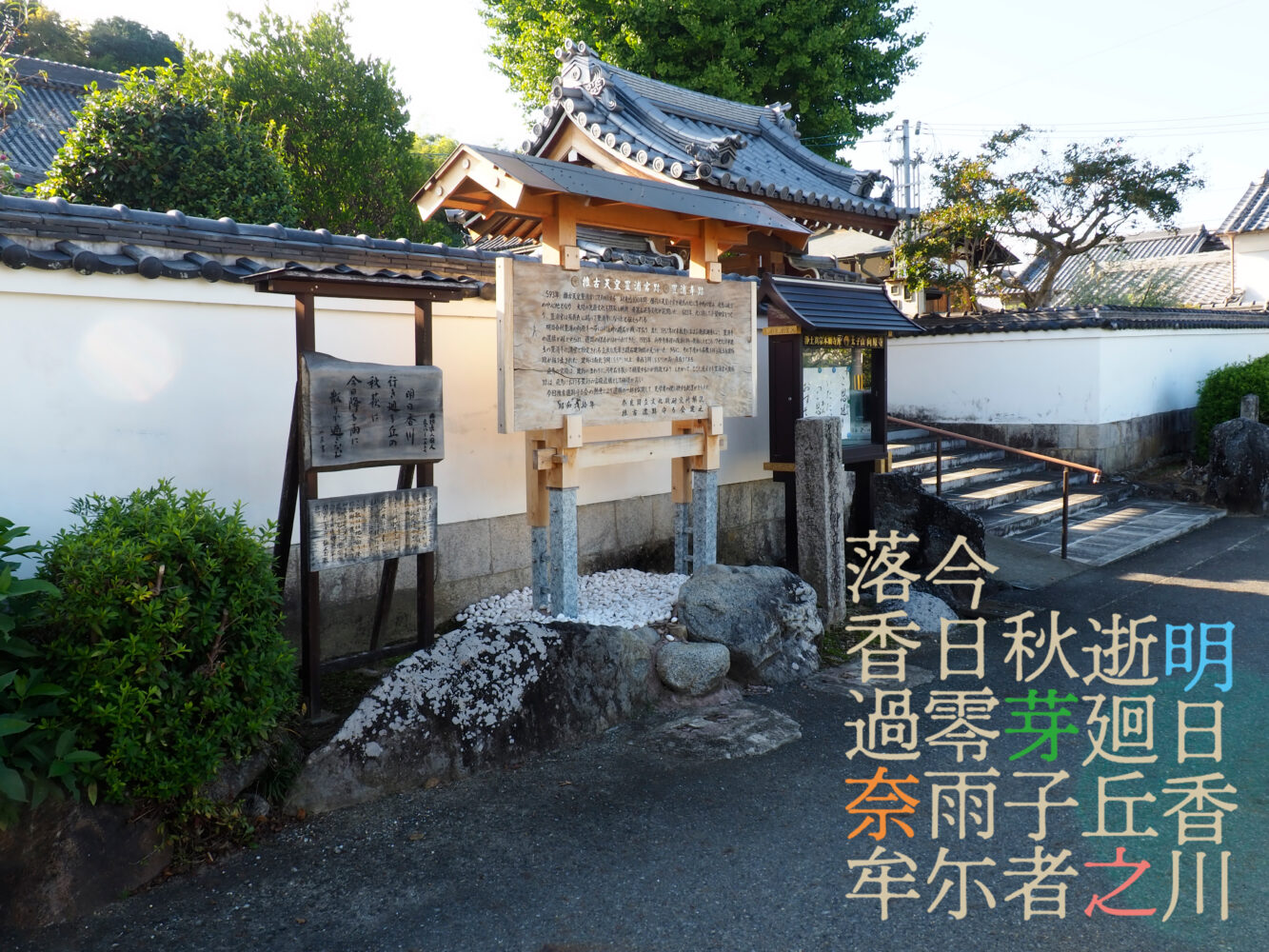
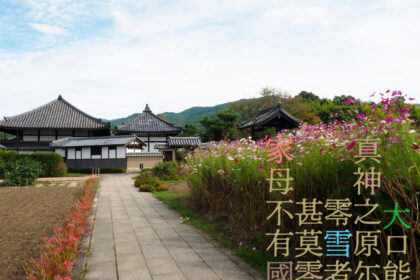
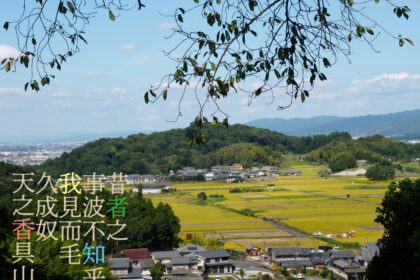
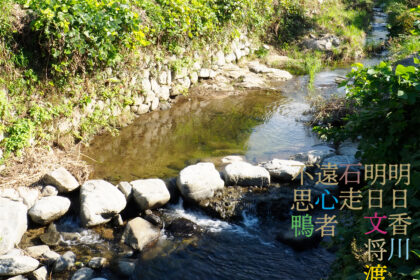

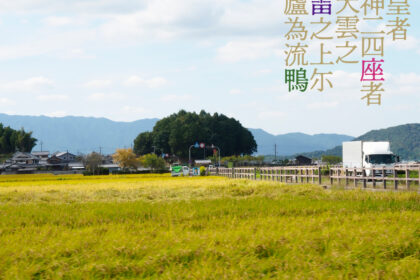
コメントを残す